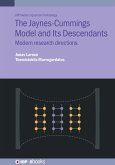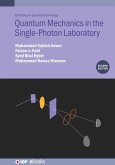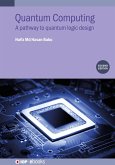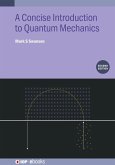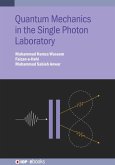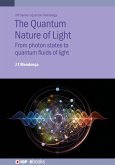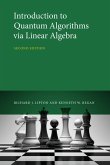The Jaynes-Cummings model (JCM) is a theoretical model in quantum optics and originally developed in the 1960s to study fundamental aspects of non-relativistic light-matter interaction on the quantum level. The Jaynes-Cummings model is of great interest to atomic physics, quantum optics, solid-state physics and quantum information, both experimentally and theoretically. It also has applications in coherent control and quantum information processing.
The Jaynes-Cummings Model (JCM) has been at the forefront of modern physics as one of the simplest, yet intricately nonlinear, models of light-matter interaction. Focusing on the omnipresence of the JCM across a range of disciplines, this significantly updated and comprehensive review conveys to the reader the fundamental generality of its formalism, looking at a wide range of applications in specific physical systems and across disciplines including atomic physics, quantum optics, solid-state physics and quantum information sciences. An ideal reference for researchers in quantum physics and quantum optics, the book also comprises an accessible introduction for students engaged with non-equilibrium quantum phase transitions, quantum computing and simulation, quantum many-body physics, cavity, circuit and waveguide QED. With over 2000 references reaching up to 2024, the monograph aims to demonstrate the enduring relevance of the JCM, including a discussion on its pivotal role for the decades to come.
The Jaynes-Cummings Model (JCM) has been at the forefront of modern physics as one of the simplest, yet intricately nonlinear, models of light-matter interaction. Focusing on the omnipresence of the JCM across a range of disciplines, this significantly updated and comprehensive review conveys to the reader the fundamental generality of its formalism, looking at a wide range of applications in specific physical systems and across disciplines including atomic physics, quantum optics, solid-state physics and quantum information sciences. An ideal reference for researchers in quantum physics and quantum optics, the book also comprises an accessible introduction for students engaged with non-equilibrium quantum phase transitions, quantum computing and simulation, quantum many-body physics, cavity, circuit and waveguide QED. With over 2000 references reaching up to 2024, the monograph aims to demonstrate the enduring relevance of the JCM, including a discussion on its pivotal role for the decades to come.
Dieser Download kann aus rechtlichen Gründen nur mit Rechnungsadresse in A, D ausgeliefert werden.



